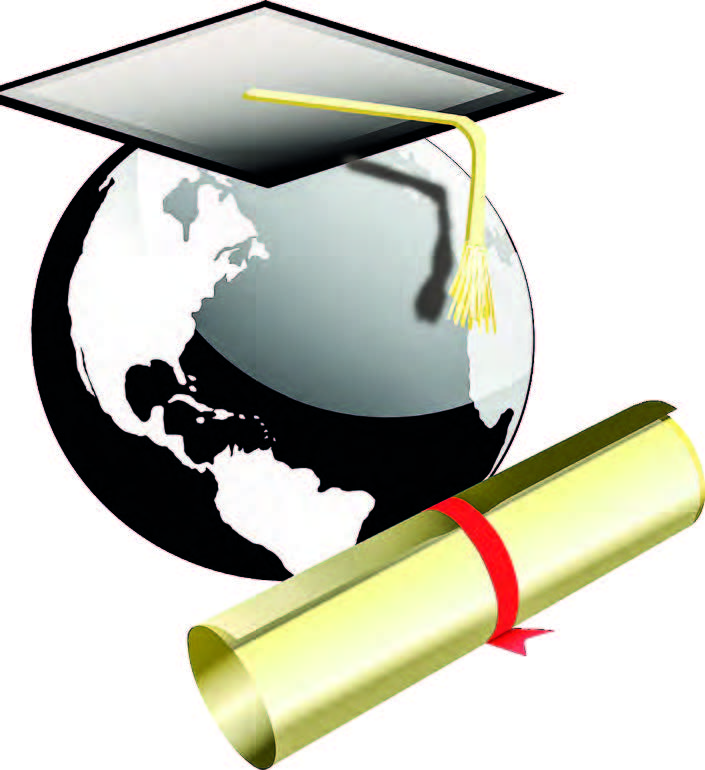By Dr Zeyar Win
THE 21st century is often referred to as the “Age of Knowledge.” As such, education has become increasingly valued. When discussing education, universities, colleges, and vocational training schools are closely associated with the term. Developing countries recognize education as a fundamental requirement for national progress, leading to expanded opportunities for learning. Governments have established more educational centres domestically and have also sent students abroad for further studies. Myanmar, too, has historically placed significant importance on education, as evidenced by historical records and traditional proverbs such as “Knowledge is a golden pot that cannot be stolen” and “No one is old whenever they want to get knowledge”.
Academic Degrees
Academic degrees play a crucial role in an individual’s career, personal development, and social status. Obtaining a degree opens doors to better job opportunities in the labour market. For instance, fields such as health, engineering, and law require formal degrees. University education integrates theoretical knowledge with practical skills, enhancing problem-solving abilities and critical thinking. Degree holders are often more respected in society and have greater earning potential. Additionally, university education improves communication skills, teamwork, and self-confidence.
Choosing the right degree programme involves considering personal interest and passion, job market opportunities, tuition costs, scholarships, and regional demand for certain expertise. Challenges in higher education include high expenses, time consumption, and gaps between academic curricula and real-world applications. Pursuing a degree not only shapes an individual’s future but also contributes to societal and national development. Selecting an appropriate degree and overcoming its challenges can be key to achieving success.
Workplace Adaptation
Degree holders often struggle to adapt to their respective workplaces, a challenge observed globally, including in Myanmar. University curricula sometimes fail to align with practical industry requirements, lacking hands-on experience or technical proficiency. For example, theory-focused education may not adequately prepare graduates for real-world problem-solving or technical expertise. Additionally, graduates may lack soft skills like communication, teamwork, and time management, which are essential in the workplace. As technological advancements and job requirements evolve rapidly, degree holders must stay updated with modern skills. In developing countries, limited job opportunities often force degree holders into roles unrelated to their academic qualifications.
To address this, universities need to design curricula that better align with workplace needs. This includes incorporating technical training, digital skills, and hands-on experience. Internship programmes and on-the-job training initiatives can also bridge the gap between academic learning and professional requirements. Furthermore, workshops on soft skills such as leadership, collaboration, and adaptability should be encouraged. Simply holding a degree is insufficient, and graduates must be trained to effectively integrate into professional environments.
Development
The development of a country, organization, or individual is fundamentally linked to education. As the saying goes, “A nation progresses as knowledge rises.” Therefore, the proper utilization of degree holders in suitable roles is vital. Apart from foundational degrees, postgraduate qualifications influence promotions and placements, depending on the relevance and applicability of one’s expertise. Master’s and PhD degrees should be evaluated based on their field of study rather than merely serving as criteria for career advancements. A department’s efficiency increases when academic qualifications are properly matched with responsibilities.
However, it is important to note that simply holding an advanced degree does not equate to mastery in all fields.
In developing nations, some young professionals misunderstand the purpose of education, believing that accumulating degrees alone ensures success, regardless of their relevance. This misinterpretation leads to inefficient learning practices.
Thus, for organizations and companies to progress, they must strategically utilize degree holders according to their expertise. Training, refresher courses, and adherence to workplace ethics should be prioritized. Institutions should establish structured qualification requirements to optimize human resources efficiently. Individuals must continuously update their knowledge related to their profession, undergo relevant training, and cultivate teamwork ethics. Ultimately, the proper deployment of educated professionals enhances overall development and efficiency in both corporate and national contexts.


